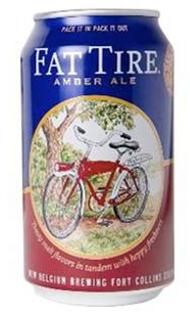On January 24, 1935, the first canned beer was sold. Today, canned beer is the most popular container for the beverage and has even grown in popularity even among craft brewers, such as Oskar Blues.

The properties of the aluminum can provide benefits for consumers and manufacturers, according to Alcoa, a leading global provider of primary aluminum. Aluminum, a light weight and highly recyclable material, keeps transportation costs low for packagers and distributors, like Ball, who deliver and ship beer around the world. The consumer also enjoys benefits from the aluminum can - by eliminating light and oxygen exposure aluminum cans keep the beer fresher longer.
Today, the aluminum beverage can is the world's most recycled container - more than 69 percent of all cans are recycled worldwide according to the International Aluminum Association report. It's estimated that since 1972 some 37 billion pounds of aluminum have been recycled in the U.S - these 1.2 trillion aluminum cans placed end-to-end could stretch to the moon and back some 174 times, and have earned Americans more than $25 billion.
The beer can is aging well
It's been over a decade since Oskar Blues introduced its craft beer in cans, and more than four decades since aluminum cans first appeared on retail shelves, but aluminum beverage packaging continues to innovate and expand. With a strong sustainability message, unparalleled portability, distinct sizes and striking branding, the aluminum can has become firmly established as a crucial element in successful beverage brand strategy.
"The appeal of the can has never been stronger," explains Jim Peterson, vice president of marketing & corporate affairs at Ball Corp. "The innovation, the development, and the branding opportunities that metal packaging offers to brand owners make it an essential part of the overall brand positioning for the beverage inside." Ball Corporation produces more than 62 million recyclable aluminum cans a year in more than a dozen countries, and the company's products are now being embraced by craft beer and wine, as well as by traditional can customers.
The can is portable, sustainable, and flexible
Perhaps most relevant for today's environmentally conscious consumer, aluminum packaging offers a strong sustainability message. The aluminum can is the most recycled beverage container in the world, with a recycle rate of 65 percent in the United States and 67 percent in Europe. Since aluminum is infinitely recyclable with no loss of product integrity, cans are part of a quick-moving, closed material loop recycling system that typically puts them back on the shelf as fast as 60 days after a consumer has placed them in the recycling bin. In addition, aluminum cans contain on average two-thirds recycled metal and making cans from recycled metal saves 95 percent of the energy used to make cans from virgin materials.
Cans also offer benefits for the brand owner's bottom line. Aluminum cans are among the lightest-weight beverage container on the market, with a 12-oz can weighing only 0.47 oz. This means that it takes 8 aluminum cans to equal the weight of a single glass bottle. Brand owners save on shipping and handling costs through the entire supply chain - and cans don't break.
In addition, once beverages in cans have arrived at their destination, they can get colder faster. Aluminum is great conductor, and cans chill quickly from room temperature.
Aluminum in action
"In addition to the one-size-fits-all 12-ounce can," says Peterson, "there are now more than 20 different unique can sizes in the marketplace."
For example, Oskar Blues Brewery, the first craft brewery to offer beer in a can, has begun packaging its signature Dale's Pale Ale in a royal, or imperial, pint from Ball. This 568-mL designation, usually found in the United Kingdom, gives the Pale Ale, also traditionally British, a new look and a unique marketing angle.
Infinite Monkey Theorem wines also capitalized on the diversity of can sizes. It now offers a number of its sparkling wines in 250-mL cans, perfect for picnics. Hikers who prefer a chilled white wine can also take advantage of aluminum's conductivity to keep their beverages cool. This hip, portable packaging has added to Infinite Monkey Theorem's market image as a counter-culture winemaker focused on quality wine without pretense.
Ball has expanded on the innate portability and convenience of aluminum cans with the introduction of Alumi-Tek bottles. Alumi-Tek allows consumers to "reclose" their beverages with a resealable twist-off cap. Industry leaders such as Sun King Brewing Co. and Oskar Blues have utilized the Alumi-Tek bottle to market their beer and enhanced water. The reclosable bottle also makes it easier for brand owners to take advantage of larger can sizes, as consumers can reclose the can and enjoy the beverage again later.
New Belgium Brewery took advantage of Ball's proprietary Eyeris Enhanced Graphics technology to create premium, on-shelf differentiation with their colorful craft beers. New Belgium's artwork is evocative and intricate, resembling an old-fashioned watercolor, and Ball's printing innovation allowed New Belgium to transfer its distinct look from the bottle to the can in an effective, eye-catching way. Eyeris technology allows brand owners to print photo-quality, high-resolution scenery, logos and imagery in up to six different colors.
The profile of aluminum beverage packaging has been steadily increasing, and it shows no signs of stopping as more brand owners adopt cans. In order to keep this trajectory, however, can manufacturers will need to continue innovating and adapting to the needs of new markets and customer appeal.





